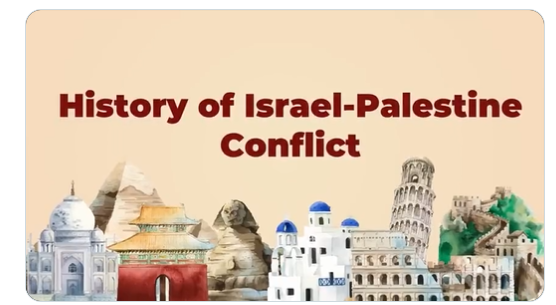The Israel-Palestine conflict is a decades-old issue that has captured global attention and triggered passionate debates. Rooted in a complex history of political, cultural, and religious factors, this ongoing conflict has shaped the Middle East and the world at large.
To gain a deeper understanding of this enduring struggle, here are ten essential facts that shed light on its origins, key players, and potential pathways to peace.
1. Historical Roots
The Israel-Palestine conflict finds its origins in the late 19th and early 20th centuries when Jewish immigration to Palestine, then under Ottoman rule, increased significantly. Tensions between Jewish and Arab communities grew as both groups laid claim to the same land.
2. The Balfour Declaration
In 1917, the Balfour Declaration by the British government expressed support for “the establishment in Palestine of a national home for the Jewish people.” This declaration laid the foundation for Jewish immigration and settlements in Palestine.
3. The United Nations Partition Plan
In 1947, the United Nations adopted a plan to partition Palestine into separate Jewish and Arab states. While accepted by Jewish leaders, Arab leaders opposed it, leading to a series of conflicts.
4. The Creation of Israel
In 1948, David Ben-Gurion, the head of the Jewish Agency, proclaimed the establishment of the State of Israel, resulting in the first Arab-Israeli war. Israel emerged as an independent state.
5. The Palestinian Refugee Crisis
The 1948 war led to a significant exodus of Palestinian Arabs who became refugees. This issue remains a major point of contention, as Palestinian refugees and their descendants seek the right to return to their ancestral lands.
6. The Six-Day War (1967)
In 1967, Israel fought the Six-Day War, which resulted in its occupation of the West Bank, Gaza Strip, and other territories. These territories remain a central issue in the conflict.
7. The Oslo Accords
In the 1990s, the Oslo Accords aimed to establish a framework for future negotiations and a two-state solution. However, subsequent disputes and violence derailed the peace process.
8. Settlements and International Law
Israeli settlements in the West Bank and East Jerusalem have been a significant point of contention. Many argue that these settlements violate international law, which Israel disputes.
9. Role of International Players
The United States, as a close ally of Israel, and other nations play a role in mediating and influencing the conflict. The United Nations, the European Union, and Arab states also have roles in peace efforts.
10. Ongoing Challenges and Hopes for Peace
The Israel-Palestine conflict remains unresolved, with recurring clashes and attempts at peace negotiations. A two-state solution, which envisions independent Israeli and Palestinian states, continues to be a goal for many, but challenges persist.
The Israel-Palestine conflict is a deeply rooted and complex issue with deep historical, political, and emotional dimensions.
While the path to peace remains challenging, understanding the key facts and historical context is vital to engage in constructive discussions and seek a lasting resolution.
The conflict’s impact extends far beyond the region, affecting global politics, diplomacy, and human rights efforts. In the pursuit of peace, acknowledging the historical facts and contemporary challenges is a crucial first step.














